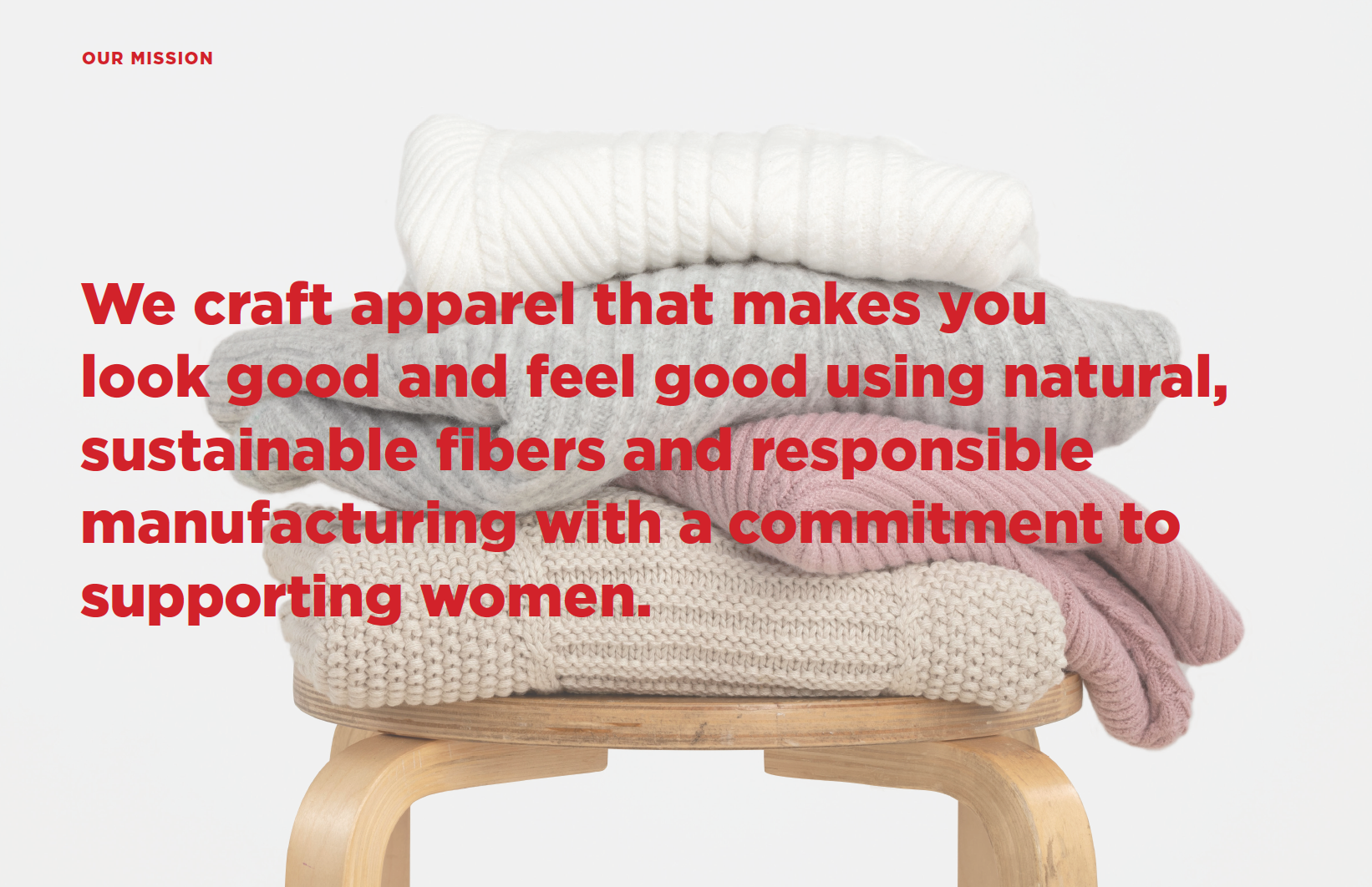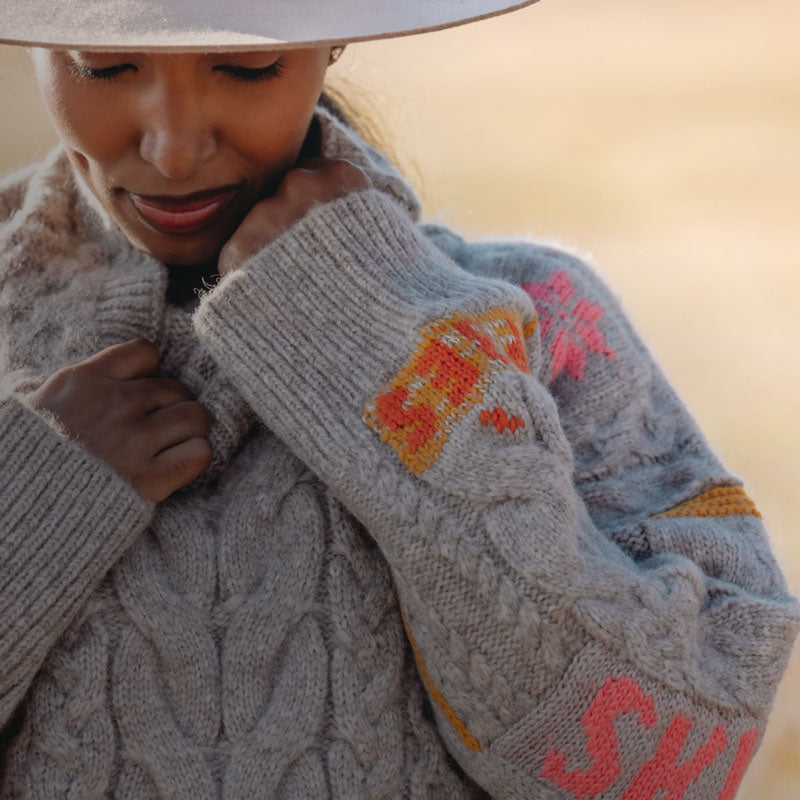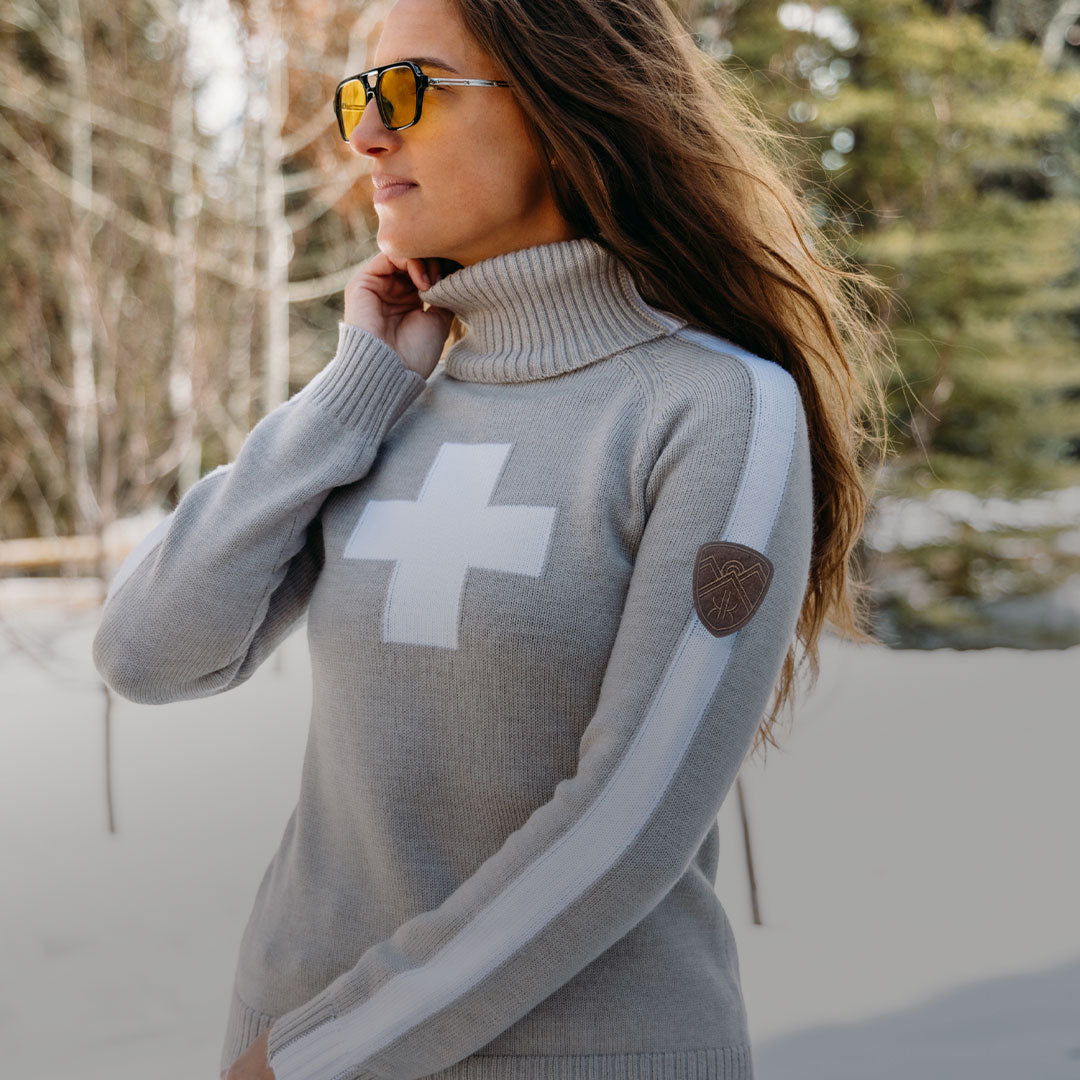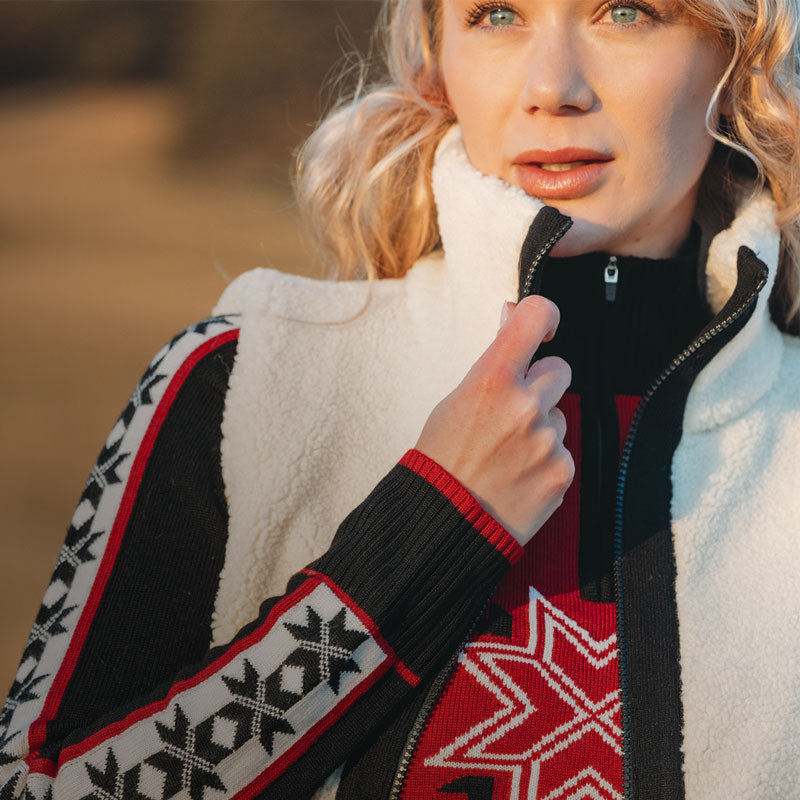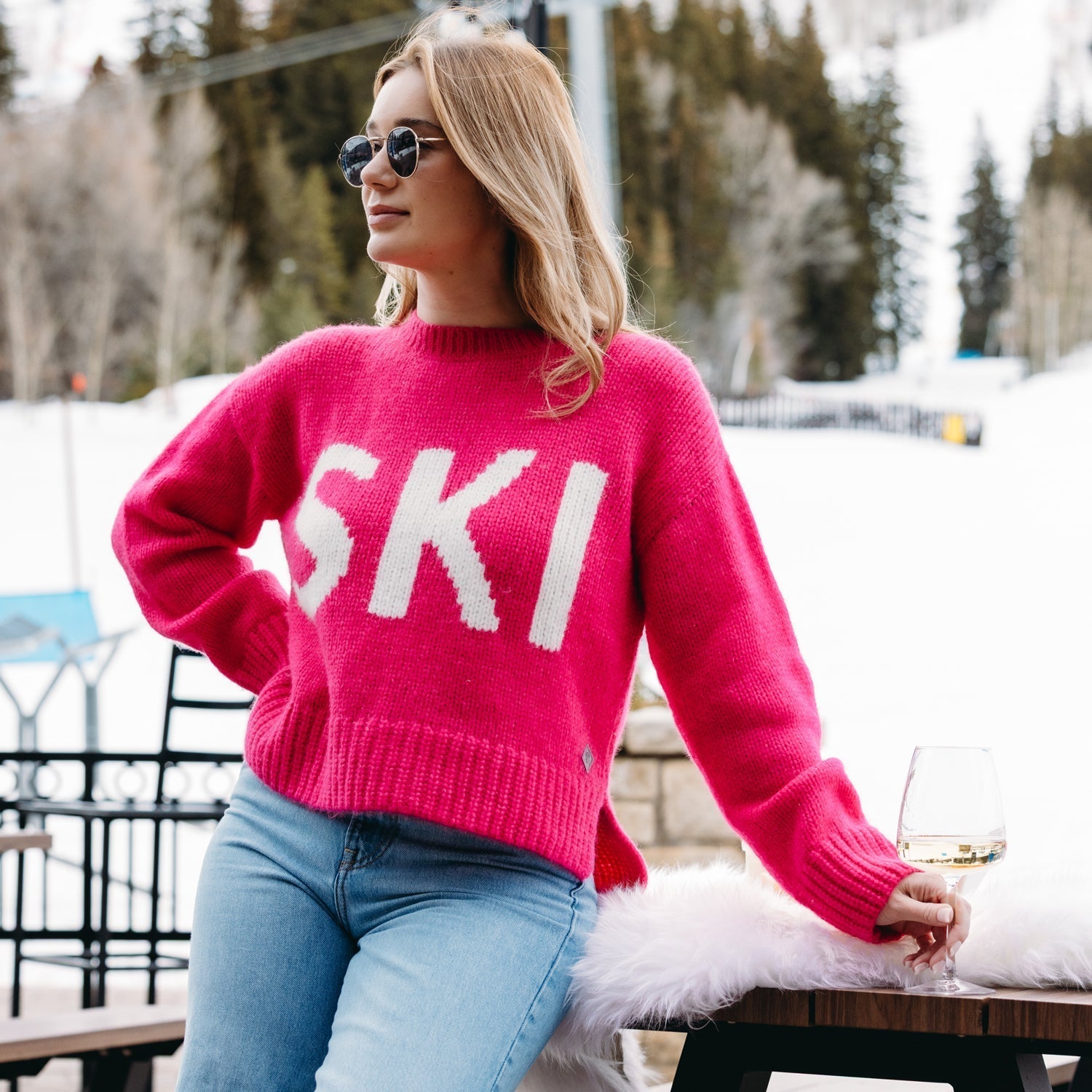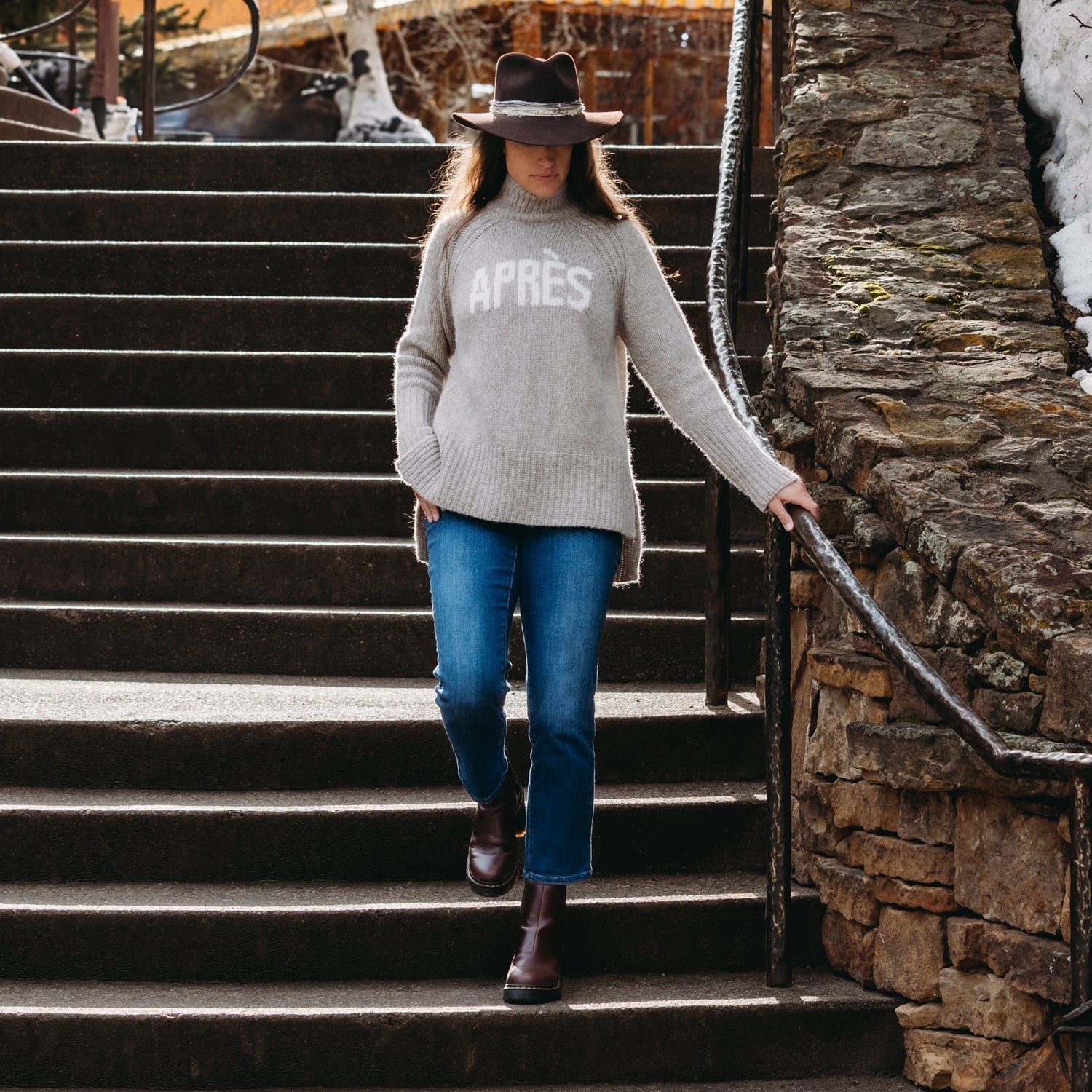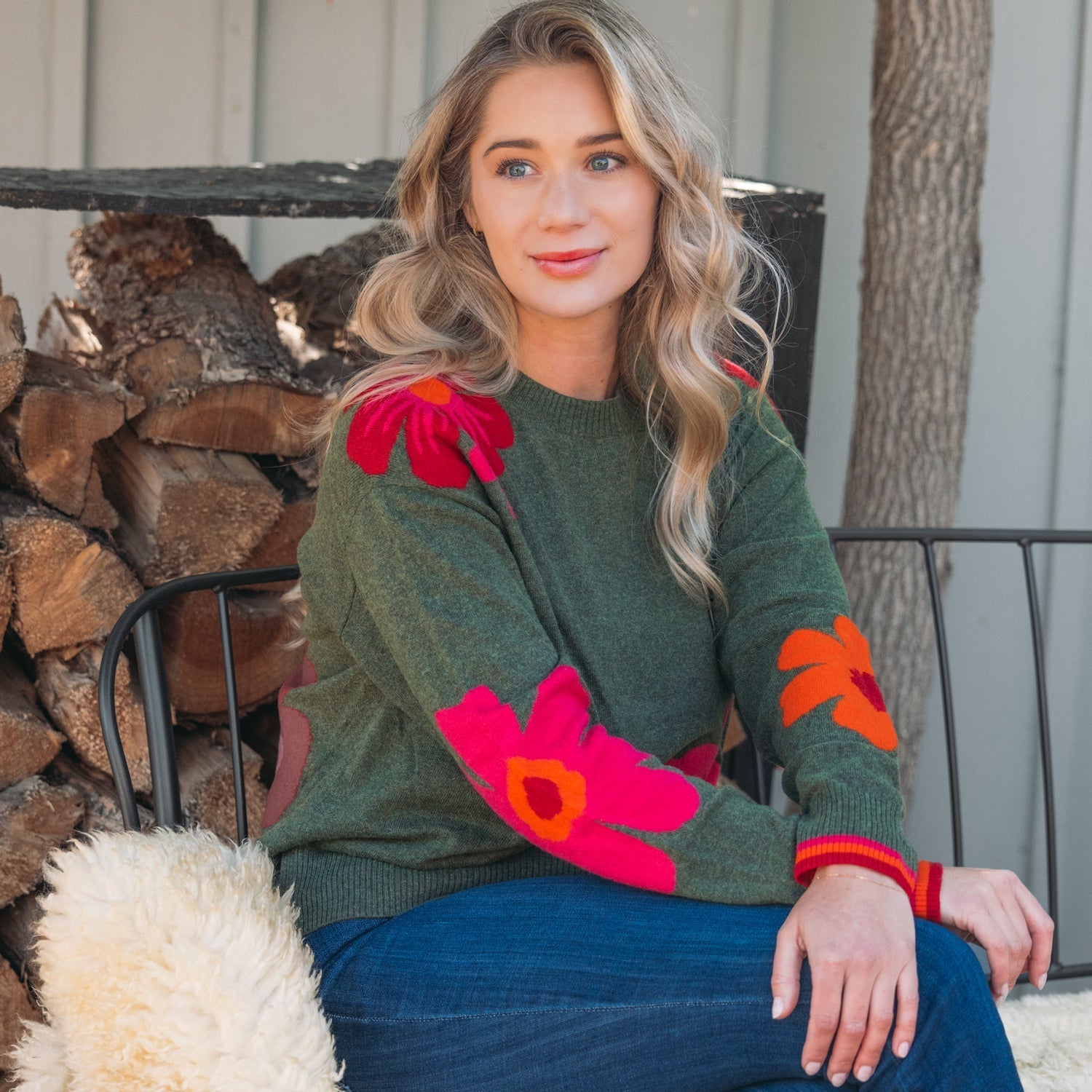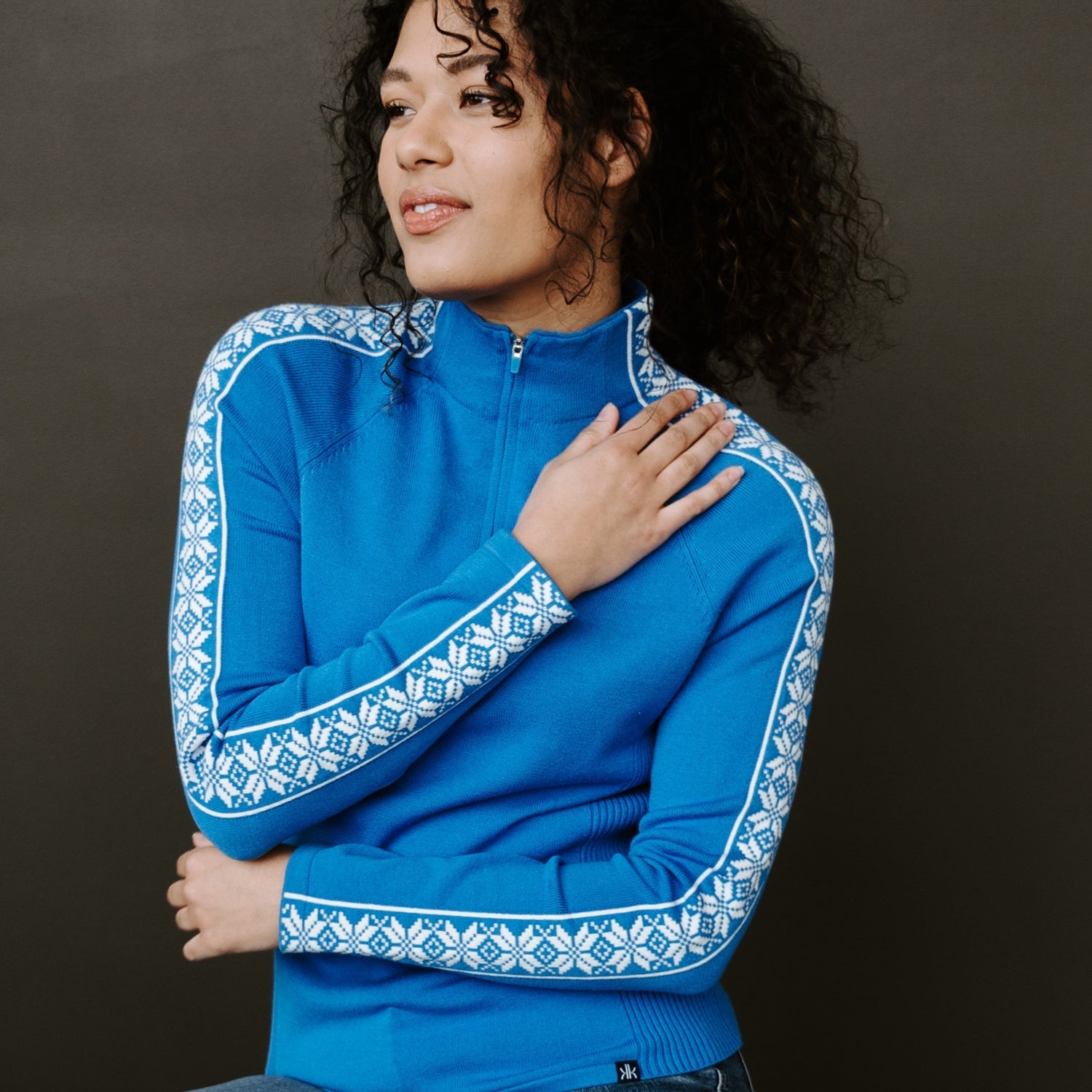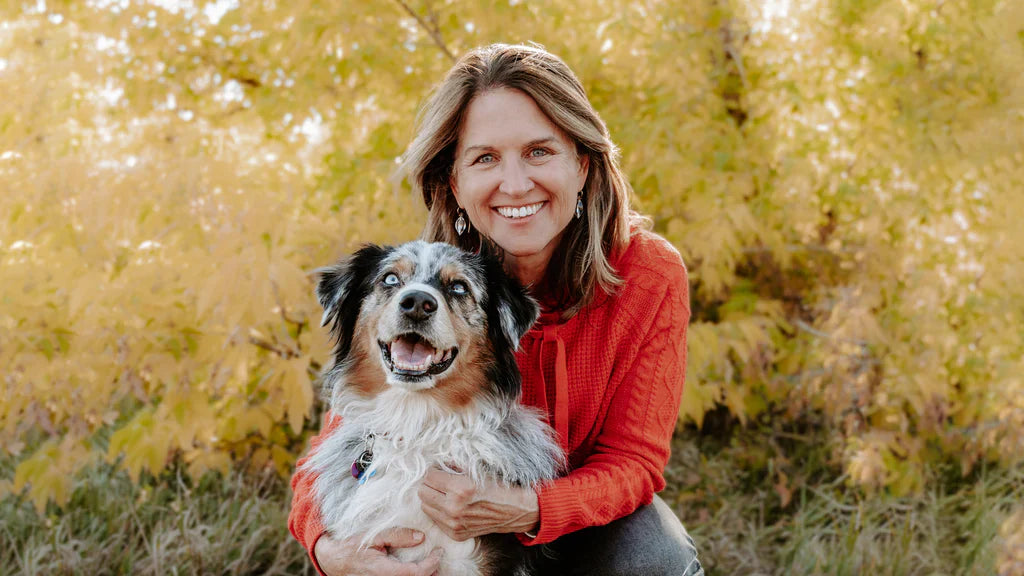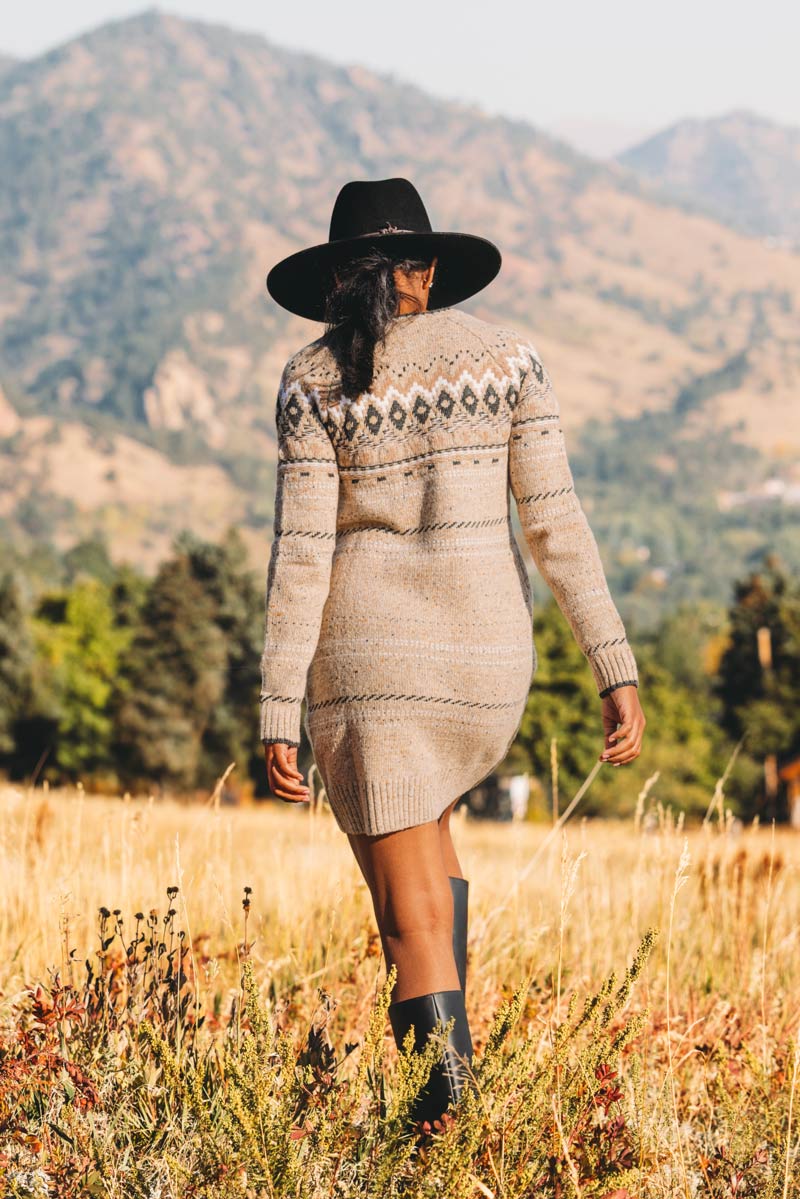CompanyWeek.com Interviews Our Founder...
Krimson Klover is Swenson's fourth knitwear brand in 25 years, after Chompas, Eir, and Neve.
She started in South America with Chompas in the mid-1990s, and still calls Peruvian, Bolivian, and Uruguayan knitters are the best in the world. "When they knit a sweater, I think they leave a little bit of their soul in it," she says. "The problem: They were expensive. "Even though they were beautiful, there was such a limited market we could sell into and make any money."
Eir's ski sweaters required "a more technical knitting machine," which are most common in China. While she bought Eir when it was established with manufacturing partners in China, Swenson started Neve in 2002 manufacturing exclusively in China.
The experience with these previous brands made Krimson Klover "an easy ride," she says. "We're growing, which is a really good thing, and we survived the first three rounds of tariffs—hurrah for us!"
Where Does Krimson Klover Manufacture?
Four smaller factories in China (two near Shanghai and two near Hong Kong) produce Krimson Klover sweaters, and partners in Vietnam handles some production and sublimation. "I like to call them boutique factories," says Swenson. "Three of my factories are woman-owned, which is cool... I have some amazing factories. They're really incredible"

Swenson personally vets every potential manufacturing partner, and doesn't work through an agent. "I've always gone direct, and I've always found my factories through my yarn suppliers," she explains. "I won't work with a factory without visiting them."
Oversight extends to the supply chain, she adds. "We make sure we know where our yarn is coming from... We just make sure that it's 100 percent certifiable. They know where their yarn is coming from, how it was produced, how the people were treated. We're super careful with that."

As more than 90 percent of the company's products are made in China, tariffs have had a big impact. "We definitely got a pretty big hit -- unexpectedly," says Swenson.
She says the company needed more time to make adjustments to its model. "It takes us two years to bring a product to market," she explains. "It's not like you can just up and move all your production. We're primarily knitwear, and there just aren't a lot of options in the world for knitwear to begin with."
Regardless, the tariff situation led Swenson to move some of Krimson Klover's production with factories in Portugal and Romania, and she's been "exploring" Indonesia. "In Portugal, we're really diving into a seamless category," she says. "It's the most excited I've been about a category in a really long time."
She calls the Romanian factory "incredible," with "big German knitting machines." Due to the Brexit situation, it had lost quite a few clients in the United Kingdom and looking for new ones. "They're open to having new clients," says Swenson. "It was perfect timing."
"We're a small company, but we're just getting to a size where some of these other big companies will entertain us in hopes that we're going to grow with them. We're able to explore other options."

What's next?
Krimson Klover is launching a "swim collection" this winter that incorporates UPF sun protection into a line of sportswear. "It blew away all of our expectations," says Swenson. The aforementioned seamless line manufactured in Portugal will hit retail in August 2020. "We're also doing a little bit deeper of a dive into midlayer, using some technical nylon fabrics with poly fill and mixing it with knits," she adds.
"I have an amazing team, really a dynamic group of people, and they're on a career curve, so they want to grow and learn and develop their potential," she says. "I'm putting my head down and trying to learn how to grow. So that's my challenge over the next year: how to take that next step."

